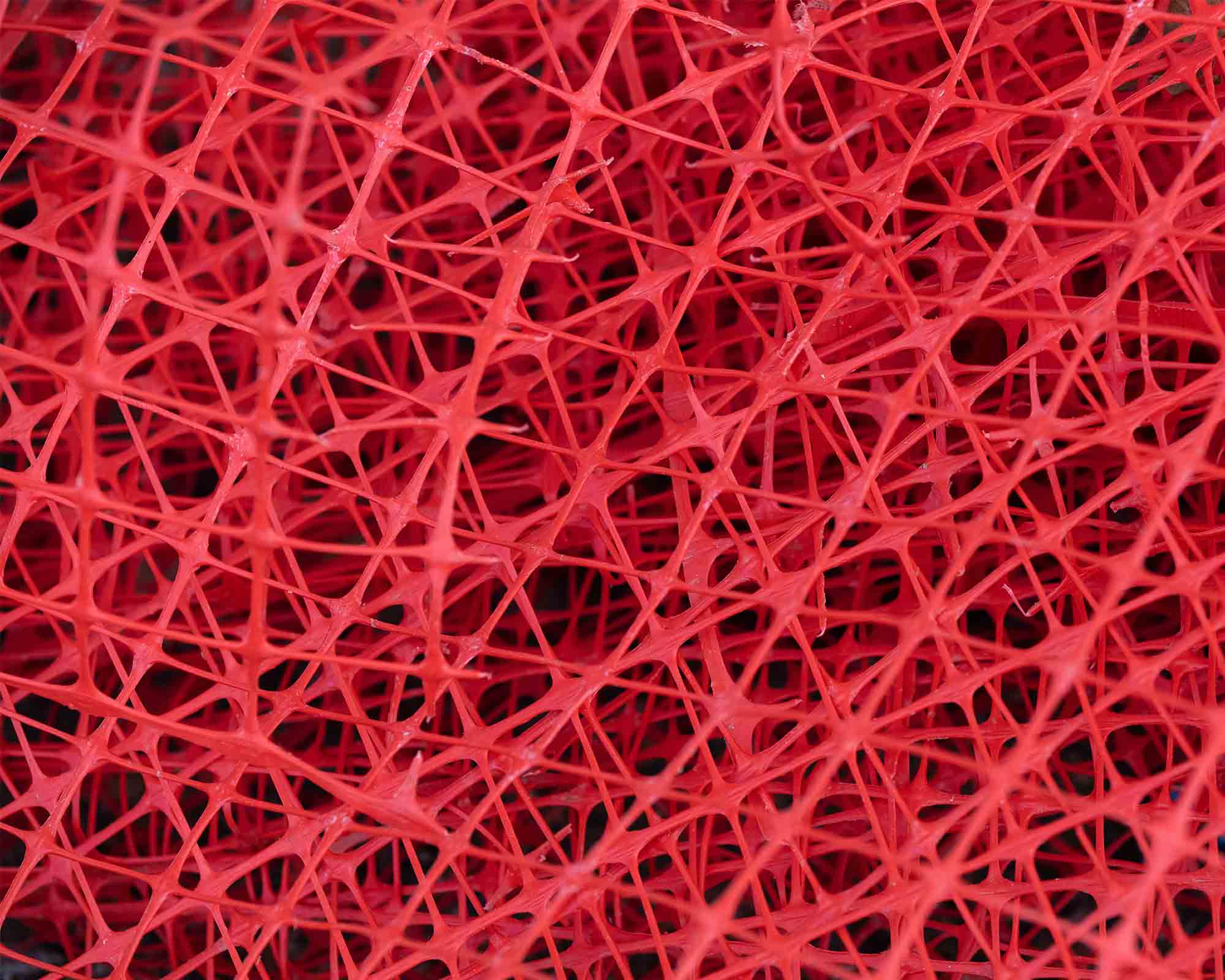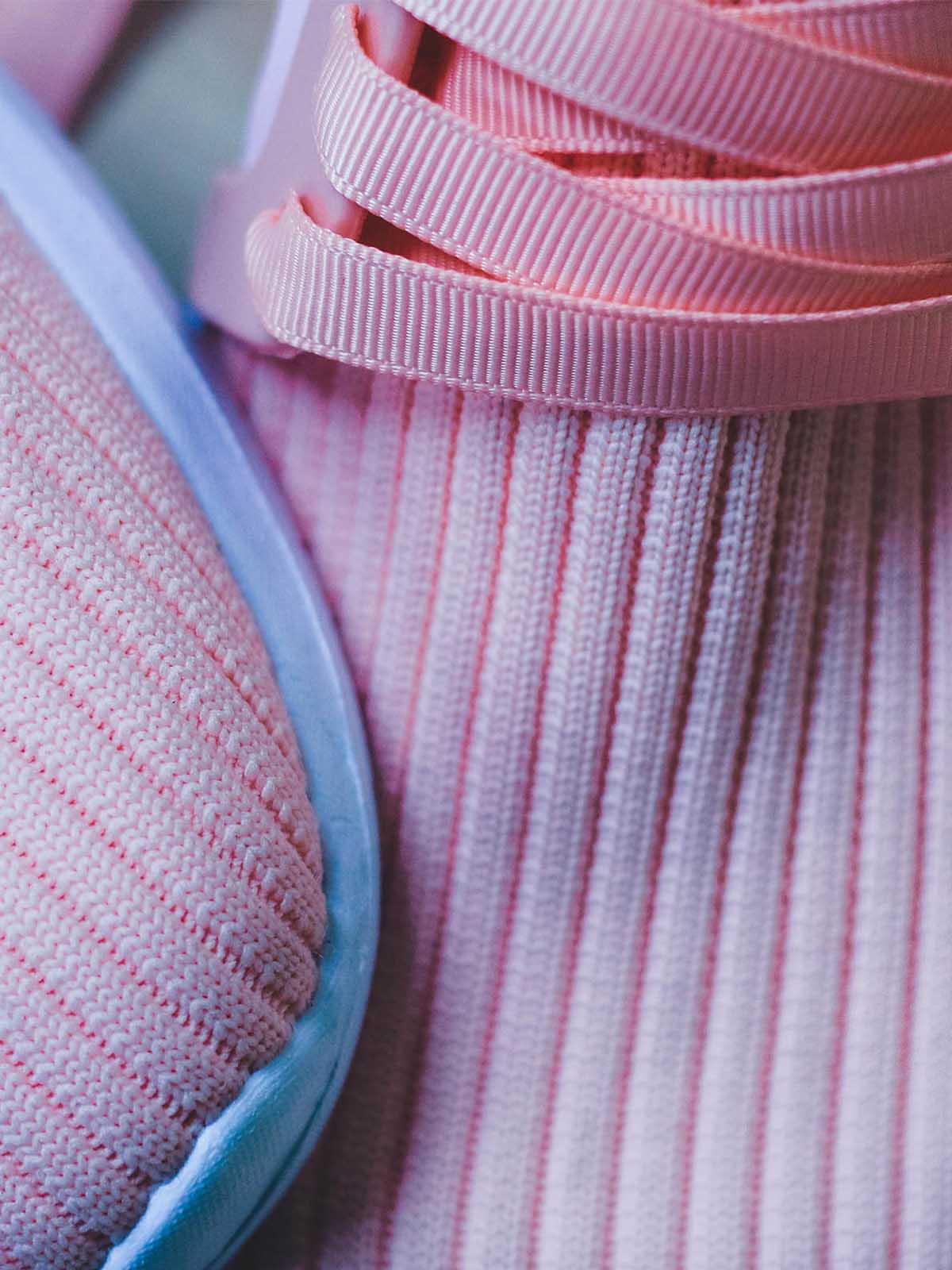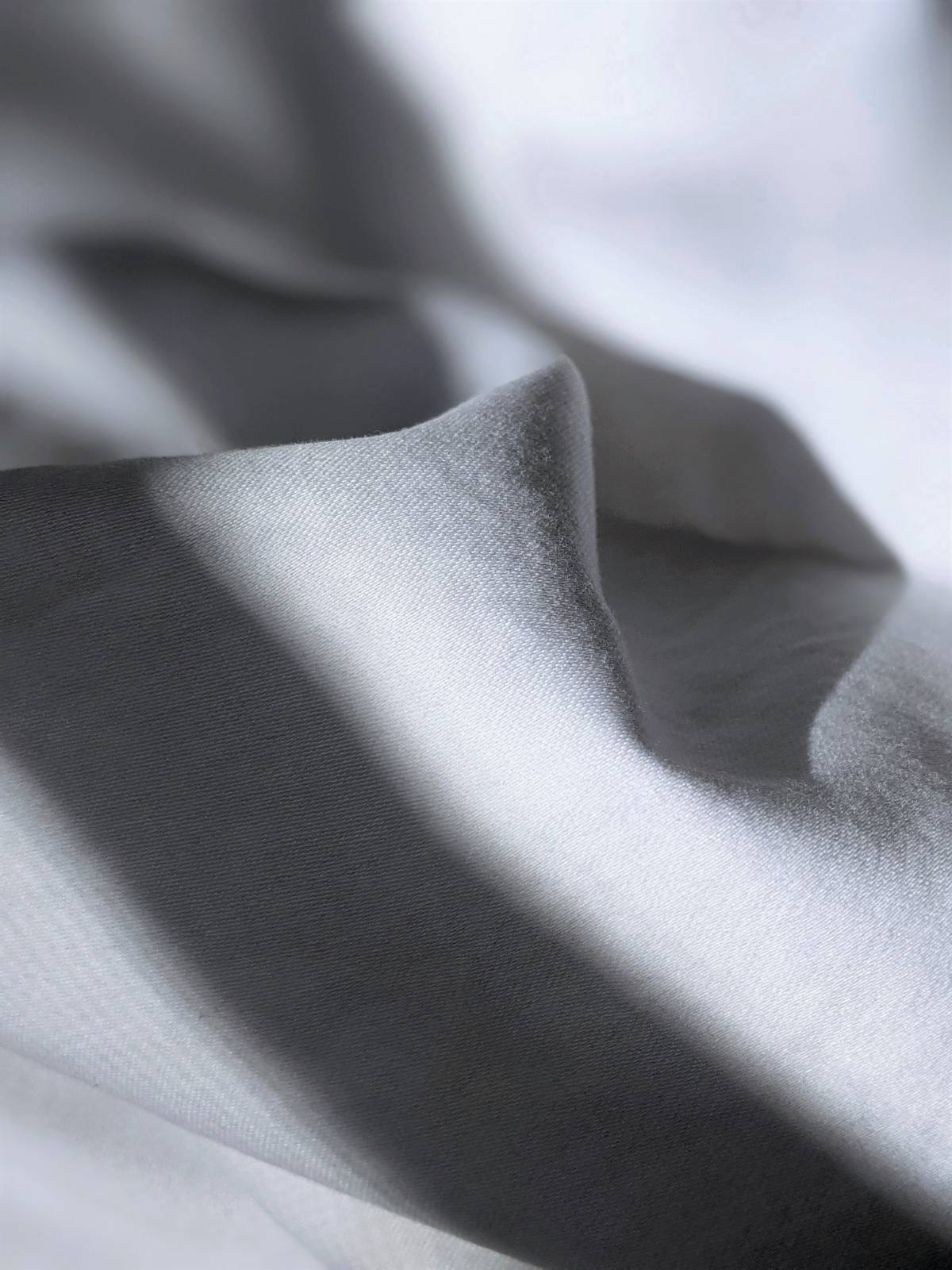Engineered from a cocktail of chemicals, synthetic fabrics have a huge carbon footprint, requiring enormous amounts of energy, water and toxic dyes to create. When you look inside of your wardrobe, don’t be fooled. Like the sugar in your low-fat granola, synthetic fibres are often disguised by clever marketing. But don’t worry – we’re here to break down that label lingo for you.
Label: Polyester
Polyester is a type of plastic. It’s used to make seatbelts, carpets, fish netting and of course, clothes. The demand for polyester today is immense because it is so cheap. Polyester is derived from petroleum, which makes it an accessory to the world’s most polluting industries. The good news is that polyester is durable. If you’re in the market for something cheap and long-lasting, look for recycled polyester garments with the Global Recycle Standard certification or breathe new life into pre-loved clothes from your local clothing op-shop.
Label: Lycra
It’s stretchy, it’s fun, it’s Olivia Newtown John circa 1981. Lycra may be an iconic fabric but it doesn’t stretch far on the ethical side of things. What you may not know is that Lycra is a brand. The material itself is called spandex, and it is made from a polyester or nylon base.
You might also recognise the sister brands to Lycra such as Cordura. These labels often appear on your swimwear, rain coats, denim or undies. Aside from being synthetic materials, there is another reason that you might think twice before buying into these brands.
Lycra, Cordura, Supplex, Tactel, Thermolite, Coolmax – they all belong to the same controversial corporation, called ‘Invista’. Invista is a subsidiary of Koch Industries, whose production ranks among America’s top 30 environmental polluters. The owners, Charles and David Koch, have also invested millions of dollars into climate change denial and blocking greenhouse gas cuts.
Label: Vegan leather
The spirit of veganism is cruelty-free. However, many ‘vegan-leathers’ don’t take the environment into account. Synthetic leather is usually made from PVC or polyurethane plastic (PU), both of which have been linked to carcinogenic substances. This puts the wearers and the makers of these fabrics at risk.
Beyond the production line, even washing these fabrics can cause harm. When we wash synthetic materials they release plastic microfibres into the ocean, damaging marine habitats. So, if you want to protect the creatures of both the sea and the land, look for natural fibre leathers. You can find eco-friendly vegan leathers made out of pineapple leaves (Piñatex), paper, cork or areca palm.
Label: Viscose rayon
Developed as an alternative to silk, rayon is soft, fragile and highly absorbent. It is commonly used in home textiles, linens, sponges and garments which drape such as blouses and gowns. Rayon is derived from wood pulp. The wood pulp is treated with caustic soda and carbon disulphide, and this mixture is then filtered and spun into a fine thread. This is a highly polluting process and releases many toxic chemicals into the environment. However, you can find a less chemically intensive version of rayon called Modal Rayon. See our Viscose material guide for more information on the sustainability of the material.
Label: Nylon
Nylon was the world’s first totally synthetic fibre. The fabric is derived from carbon chemicals which are heated and spun into individual fibres. This makes nylon both stretchy and extremely tough. Emerging in the period of World War II, this adventurer’s plastic worked its way into military parachutes, rope and tents. Today, nylon is used to make swimwear, sportswear, leggings and more. Like polyester, however, nylon production is an energy, water and chemical intensive process.
So, what now?
Look for recycled options like Econyl
Econyl is made with rescued synthetic waste. Nylon plastic waste (fabric, industrial waste, fishing nets and fluff) is reclaimed by their international collection network, then cleaned, regenerated, and processed into carpet or textile yarn.
Econyl’s parent company, Aquafil, are committed to minimising energy and water use and promoting innovative research. Econyl is used by Good and Great rated brands such as: Elle Evans, Woron, Adidas and Outerknown.
Keep informed!
There are complex facts to consider whenever we shop for clothing. By purchasing a vegan leather jacket you may be saving a cow’s hide, but if you take into account the environmental impact of these man-made fabrics, it seems like a double-edged sword. But keeping informed is the first step in every ethical fashionista’s journey as it allows you to make more mindful decisions.
Natural fabrics: a sustainable alternative?
Fibres that come from nature, such as hemp, are often touted as an eco-friendly alternative to man-made synthetics. But increased demand for these fabrics requires increased use of these natural resources, so are they really any better? In the next article in this series, we’ll be breaking down everything you need to know about your favourite ‘natural fabrics’.




















